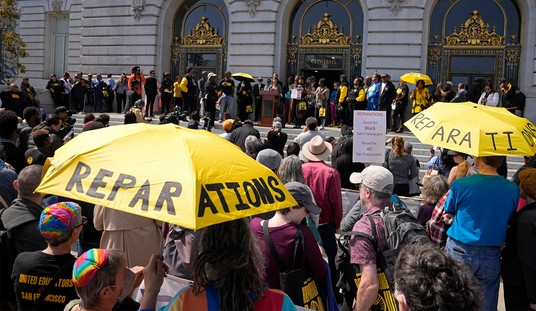Sunday, April 20 is the final day of Passover 2025, as well as Easter Sunday, and the beginning, for Orthodox and Roman Catholic Christians, of the Paschal season. This year was unusual in numerous respects, not least because Israel celebrated Passover during a time of war, and the Orthodox and Roman Catholic dates for Easter coincided. The convergence of the war with both of these great celebrations is a useful opportunity to recall a fact that is heatedly and repeatedly denied these days, but no less true for all that. Both Passover and Easter make it unmistakable: for all the claims that Israel is a “settler-colonialist state,” both of these festivals show definitively that the Jews are the indigenous people of the land of Israel.
Friday was Good Friday. Christians around the world recalled the arrest, trial, crucifixion and burial of Christ, all to be followed by his resurrection on Sunday morning. In the Gospel of Luke, Jesus foreshadows it all some time before it happens, saying: “I must go on my way today and tomorrow and the day following; for it cannot be that a prophet should perish away from Jerusalem.” (Luke 13:33)
Why can't it be that a prophet should perish away from Jerusalem? Because Jerusalem was and is the city holy to the Jews, and while the Palestinian Authority and modern-day antisemites insist that Jesus was a Palestinian, everyone really knows that Jesus was a Jew. A significant portion of his ministry took place in Judea, the land of the Jews. When Christians recall his crucifixion and resurrection from the dead, and read the stories of his arrest and trial, they are reading accounts that are set in Jerusalem.
There were no Palestinians present at any of these proceedings. The Romans didn’t rename Judea “Palestine” for another hundred years, and their doing so didn’t create a new ethnicity. Palestine was just the name of a region. Jesus’ crucifixion and resurrection took place in the context of Passover, which the Jews had celebrated in that region for centuries before he came on the scene, and would do so for centuries thereafter.
When many Jews were forced into exile, they would recall their homeland during every Passover, as they once again read the Passover Haggadah, which tells the foundational story of their liberation from slavery in Egypt. They repeated, every year, down through the centuries, the concluding statement of the Passover Seder, just as they have repeated it throughout the ages: “Next year in Jerusalem.”
That phrase serves as a reminder to the world, if the world were paying attention, of the fact that Zionism did not begin in 1948, with the founding of the modern state of Israel, or in the nineteenth century with the work of pioneering Zionist Theodor Herzl. No, Zionism, the aspiration of the Jews to return to their homeland, is many centuries older than either one, and older also than the “Palestinian people,” a KGB propaganda invention of the 1960s.
Zionism is older than the Ottoman Empire, the now-dead Islamic caliphate that did all it could to prevent the nineteenth-century Zionist movement from attaining its goals. It is older than the United States of America, on which today’s haters of Jews and Israel insist that the Jewish state now depends for its existence. It is older than the religion of Islam, on which, with its deeply rooted hatred of Jews, the “resistance” of the “Palestinian” people is actually based, although Western policymakers steadfastly ignore this fact.
Whose land is it? Well, which people was there thousands of years ago, and has longed to return there for twenty centuries and more?
Related: Good Friday and the Incoherence of Antisemitism
Yet those who insist that Israel has no right to the land it inhabits are more insistent than ever. As “Antisemitism: History and Myth” shows, the October 7 jihad massacre was the occasion for a clearly carefully planned recrudescence of Jew-hatred, including the reappearance of ancient lies that most people thought had died in the ashes of Berlin in April 1945. But this antisemitism is, as always, based on lies.
The land was always the land of the Jews. The story of the passion of Jesus Christ, and the story of the Passover, both bear witness to that fact. People throughout history have tried to destroy the Jews, and have killed many, and yet they endure. They face murderous enemies and skillful propagandists spreading lies against them, and through it all, they persist, and say it again: next year in Jerusalem. Their city.










